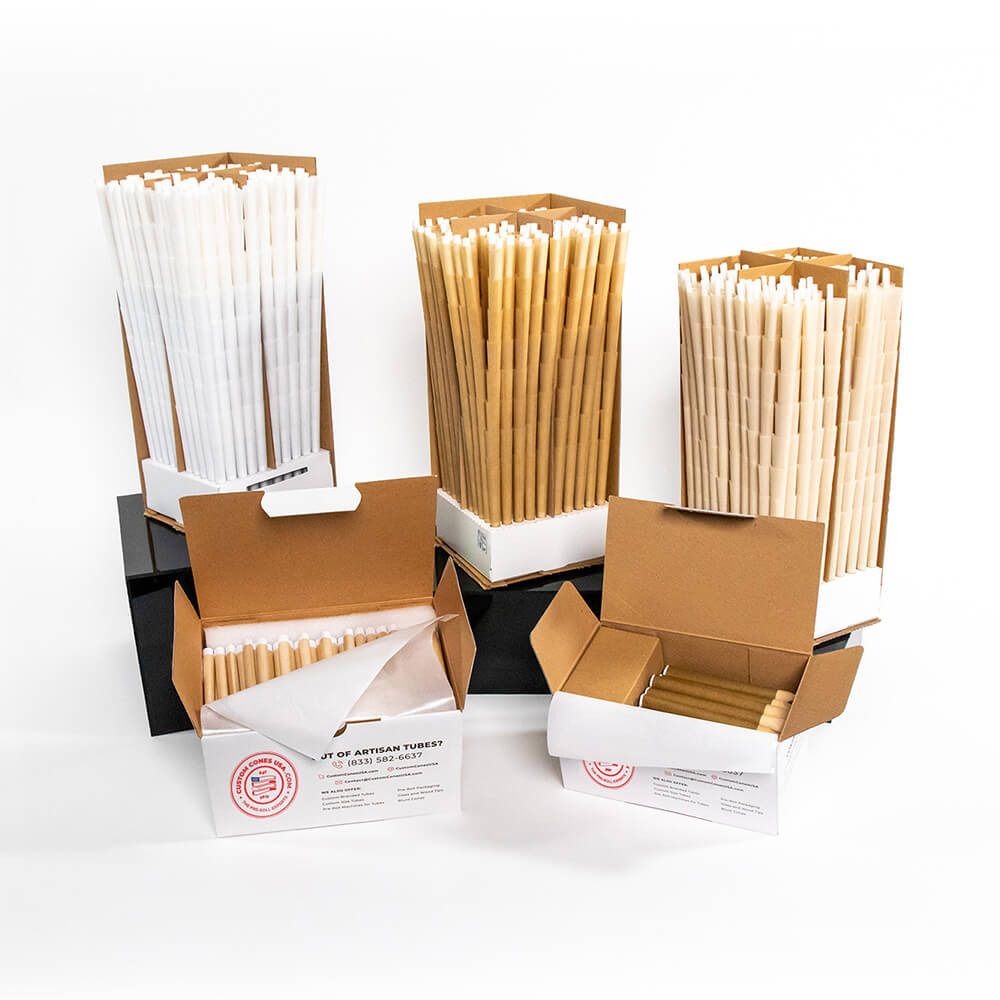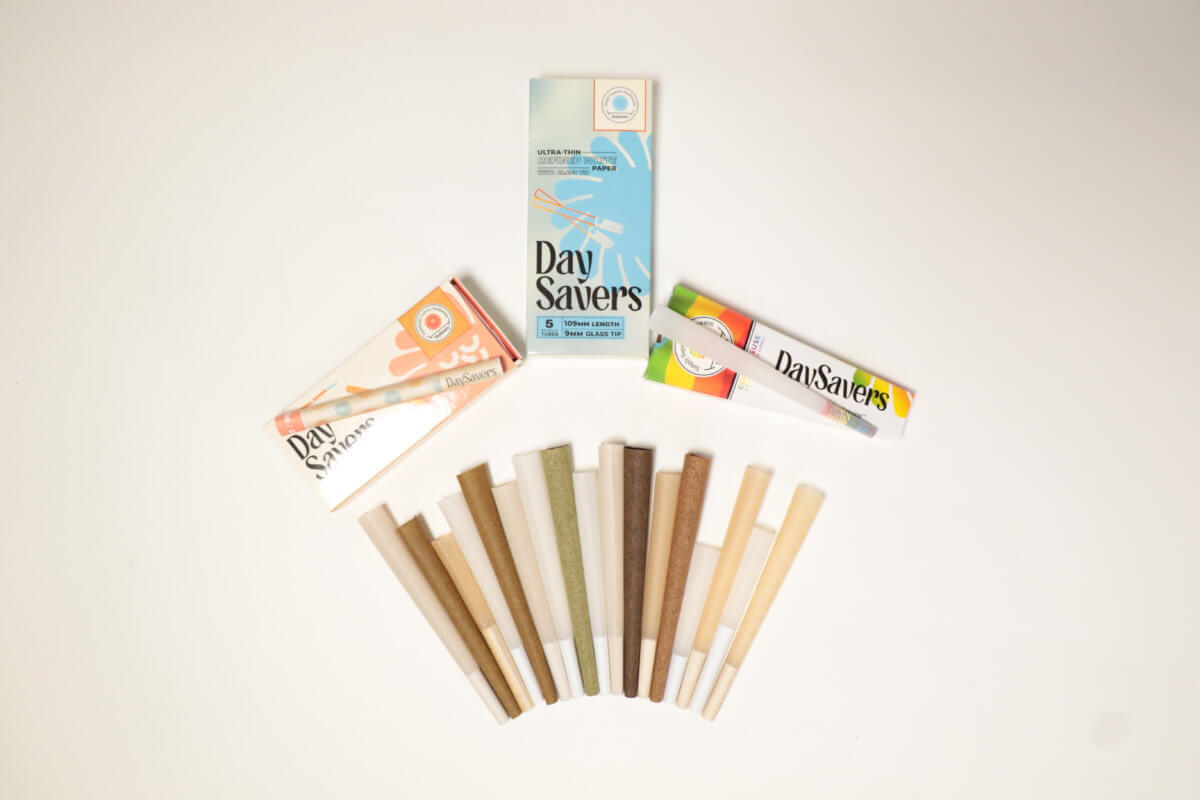Member Blog: Ensuring Pre-Roll Compliance – Navigating New York’s Stringent Cannabis Testing Regulations

With several states going legal ahead of them, New York State regulators had the benefit of watching other states develop testing programs, which is why New York’s testing regiment goes beyond many of the early adopter states to be one of the most stringent in the nation.
And while the rollout of licenses has been slower than many expected, testing regulations are now in place to ensure the products that do make their way to the public are safe for consumption.
New York also requires products be tested in their final form, which means that pre-rolls, for example, will be tested with rolling papers included so it is vitally important that your rolling papers will also pass the following tests to ensure that all cannabis products are safe for human consumption.
New York requires testing for the following:
- Moisture Content and water activity;
- Residual solvents and processing chemicals;
- Eight different heavy metals;
Each of these tests are performed to protect consumers and are performed in some capacity by every state that has a legal cannabis program, though every state has its own regulation.
Some of the testing limits are fairly standard, like for example the limits on moisture content and water activity. Because any water activity above 0.70 Aw creates the conditions for mold to grow, which can be harmful if consumed, New York, like most states, caps water activity at 0.65 Aw in flower and pre-rolls. Additionally, dried flower batches must have a moisture content between 5.0-15.0%, with any sample exceeding 15.0% deemed unacceptable.
However there are some significant differences between the Empire State’s regulations and those in other markets.
Heavy Metals Testing
One of the major differences between New York and other programs is the number of heavy metals for which it tests. Plants absorb heavy metals from the soil, but they can damage all the body’s vital systems, including respiratory, central nervous and even the reproductive system.
While New York tests for the “Big Four” – mercury, cadmium, lead and arsenic (all of which are toxic even at small doses) – it is also one of a handful of states that also add chromium, which can damage the kidneys and liver.
But the Empire State goes even a step farther, requiring additional testing for copper, nickel and antimony.
Microbial and mycotoxin testing
Microbes and mycotoxins represent the greatest threat to human health among the tested items.
Most people are familiar with how microbes can make you sick, which is why New York tests for Salmonella, E. coli and several Aspergillus species of mold, including A. fumigatus, A. flabus, A. niger and A. terreus.
Mycotoxins are a toxic compound produced by molds like Aspergillus and can suppress the immune system and cause liver damage. New York requires testing for two classes of mycotoxins: Aflatoxins and Ochratoxin A. Both have properties that can alter DNA and potentially cause the formation of cancer cells. Testing for mycotoxins help ensure cannabis products are safe for human consumption.
The limit for all mycotoxins in New York is 0.02 micrograms per gram.
Pesticides
Like most states, New York limits the pesticides that cannabis growers may use to help boost production and prevent insects from destroying their crop and requires labs to test for residual pesticides on product.
All pesticide products sold in New York State must be registered with the state, unless classified as a “minimum risk pesticide” by the federal government. To help producers determine if a pesticide can be used on cannabis, the state’s Department of Environmental Conservation even added “cannabis” and “hemp” to the use/type drop down menu in its pesticide database.
All pesticide use “must be declared for targeted testing” and additionally, New York law also requires labs to specifically test for 70 different pesticides, providing actionable limits.
Ensuring New York Pre Roll Compliance
As we noted, New York law requires all products be tested in their final form, including pre-rolls. According to the law, “the entire pre-roll or a portion of it (depending on size (blunt, 0.5-g, 1-g)) must be prepped and tested for all contaminants of concern,” which means even if your cannabis is clean, your products can fail and be destroyed if your rolling papers or pre rolled cones are not.
Because of that, manufacturers need to protect themselves – and their customers – by carefully selecting suppliers. After all, a study from California’s SC labs found that 11% of rolling papers they tested would fail that state’s testing regiment – which doesn’t even include Chromium, copper, nickel or antimony – and that 90% of rolling papers contained heavy metals with more than 8% containing them at a rate above the allowable limits.
Also, this year in Michigan, researchers analyzed the elemental composition of 53 different rolling papers and discovered that about 25% of the samples contained copper at levels that exceed recommendations for inhalable pharmaceuticals. They also found elevated levels of copper, chromium and vanadium.
Pre-roll manufacturers in particular need to pay attention to their suppliers and make sure that the company from which they buy their paper takes testing as seriously as they do. This is especially true for blunt products, which contain more moisture and biomass in the hemp wraps, which makes these products more susceptible to fail these compliance tests.
Custom Cones USA’s Compliance Manager André Bayard always recommends making sure your pre-roll paper supplier is a partner.
“It’s important to find a supplier that does the due diligence and is willing to work with you so you know ahead of time if your papers will pass lab tests,” he says.
Bayard notes that when contacted by a manufacturer concerned about heavy metals content causing failures, Custom Cones USA sent samples ahead of time so the manufacturer could pack and test a handful of their completed pre-rolls to make sure the products were clean before committing to a full order.
If your pre-roll supplier is not willing to go through that step, it may be a sign that you should find another pre rolled cone supplier.
Testing failures can be expensive and damaging to a brand, so make sure you not only keep up on the latest changes to your state’s regulations, but also work with a reputable pre rolled cone company to get the cleanest, best tested pre rolled cones you can find. And always ask to see COAs. Even if you are just a dispensary selling rolling papers and empty cones for smoking, offering tested papers and pre rolled cones is crucial to protect your brand and offer quality products to your customers.
Join Us for More Exclusive Insights on the Michigan Marketplace
Striving to stay informed about New York’s dynamic cannabis industry? Mark your calendars for our upcoming New York Stakeholder Summit being held in New York, NY on Tuesday, September 24th.
At the New York Stakeholder Summit you’ll be able to dive deep into the latest trends, regulations, and opportunities shaping New York’s cannabis landscape, including hearing directly from John Kagia Hanna, Director of Policy for New York’s Office of Cannabis Management. All industry professionals are invited; NCIA members attend free. Register here to secure your spot.
Member Blog: Understanding Michigan’s Booming Pre-Roll Market and Cannabis Testing Requirements

There is no hotter pre roll market in the country than Michigan.
With an average unit price of $6.16 – one of the lowest in the country, according to cannabis analytics firm Headset – retailers have sold more than 56.7 million units for a total of more than $349.8 million through the first seven months of 2024. That puts the state of Michigan in the top spot for pre-roll units sold and second place – to much larger California – in pre-roll revenue.
And sales are actually accelerating, with Michigan posting record high pre-roll sales numbers of nearly $54.9 million in July 2024.
But if you want to compete in the Great Lakes State’s exciting and expanding marketplace, you are going to need to make sure you understand and follow Michigan’s cannabis testing program.
In Michigan, state law requires all “raw plant material” be tested for the following:
- Moisture content and water activity;
- Residual pesticides and chemicals;
These tests are primarily implemented to safeguard consumers from hidden risks in cannabis products.
“Laboratory testing minimizes the risk of exposure to pesticides, microbes, heavy metals, molds, and residual solvents by providing consumers with information about the products they are purchasing and helps to prevent consumption by sensitive populations,” reads the “Sampling and Testing Technical Guidance for Marijuana Products” document created by the state’s Cannabis Regulatory Agency.
For example, moisture content and water activity measurements are indicators of potential mold growth. When water activity exceeds 0.70 Aw, it creates an environment conducive to mold development, which can be detrimental if ingested. This is why Michigan, like many other states, has set a maximum water activity limit of 0.65 Aw for flower and pre-rolls.
Heavy Metals Testing in Michigan
Heavy metals are absorbed through a plant’s roots and can damage all of the body’s vital systems, including the respiratory system, the central nervous system and the reproductive system, even in small doses. That’s why Michigan, like all states, requires products to pass strict heavy metals testing.
But where most states limit testing to the “Big Four” heavy metals of mercury, cadmium, lead and arsenic, Michigan goes a step farther, joining a handful of states that require testing for chromium and even adding nickel to the list as well.
Microbials and Mycotoxins
Though certainly dangerous, heavy metals are less of a threat to human health than microbials and mycotoxins.
Michigan requires testing for standard microbials like yeast, mold, E. coli and salmonella, as well as Aspergillus flavus, fumigatus, niger and terreus.
As for mycotoxins, toxic compounds produced by molds, such as Aspergillus, can suppress the immune system and cause liver damage, so testing for them is certainly a health and safety issue. Michigan law requires testing for Aflatoxin B1, Aflatoxin B2, Aflatoxin G1, Aflatoxin G2 and Ochratoxin A, requiring all to be less than 20 parts per billion to receive a passing grade.
Pesticides and residual chemicals
Michigan allows the use of some pesticides and other chemicals on cannabis, but only those appearing on the Michigan Marijuana Pesticide List, which was updated in early 2024. Pesticides on that list have been reviewed for use by the Michigan Department of Agriculture and Rural Development (MDARD) and may be used in accordance with the label instructions.
For testing purposes, state law requires labs check cannabis for 58 different residual chemicals, each with their own action limits.
Keeping your pre-rolls in compliance
Michigan regulations require tests be conducted in the product’s “final form,” though that applies to the flower itself, according to an email from the Cannabis Regulatory Agency.
“If the pre-rolls were tested as flower, that would be considered final form testing unless something was added to materially change the product,” they wrote.
But with so much time and effort spent ensuring your cannabis stays in compliance with state regulations, why would you want to pack it into pre-rolled cones that haven’t also been tested?
To ensure your cannabis stays clean, only use pre rolled cones that that have also been tested for microbials, pesticides and heavy metals. Medical patients in particular need to be careful to ensure that the paper in their pre-rolls isn’tgoing to make them sick, whether they buy them at a dispensary or pack pre-rolls at home.
In fact, a study from California’s SC labs found that 11% of rolling papers they tested would fail that state’s testing regiment, which doesn’t even include Chromium, and that 90% of rolling papers contained heavy metals with more than 8% containing them at a rate above the allowable limits.
In fact, this year, a team of researchers from Michigan this year tested 53 commercially available pre rolled cones and rolling papers and found varying levels of heavy metals throughout the samples, many of which would have caused failures if included in testing.
“Even if testing is not required, any one issue can harm your brand,” says Custom Cones USA Compliance Manager André Bayard. “It’s important to make sure you work with a company that is as focused on keeping your products in compliance as you are.”
Bayard always recommends confirming your pre-roll supplier has COAs available to prove their products are clean and will pass tests, or will send you samples for you to test before committing to a full order.
“Make sure your supplier is focused on those requirements and is trying to set the industry standard with their products,” Bayard says.
Join Us for More Exclusive Insights on the Michigan Marketplace
Striving to stay informed about Michigan’s dynamic cannabis industry? Mark your calendars for our upcoming Michigan Stakeholder Summit being held in Detroit, MI on Thursday, September 12th.
At the Michigan Stakeholder Summit 2024 you’ll be able to dive deep into the latest trends, regulations, and opportunities shaping Michigan’s cannabis landscape, including hearing directly from Brian Hanna, Executive Director of Michigan’s Cannabis Regulatory Agency. All industry professionals are invited; NCIA members attend free. Register here to secure your spot.
Member Blog: Colorado’s Evolving Cannabis Testing Regulations


Among the first two states to legalize and the first market to open, Colorado has had adult-use cannabis regulations in place for more than a decade now and helped set a standard for all the programs that came after it.
But Colorado’s testing regiment, like the industry, is ever evolving, with the state testing for additional pesticides beginning this year, for example. In addition, the state’s new “reduced testing allowance” could make the whole process easier for manufacturers in good standing.
Like many states, Colorado requires testing of the final product, be it flower, edible or pre-roll, which means not only must your flower be clean, but everything else you put into your products as well. In the case of pre-rolls, that means the paper used in the pre-rolled cones, as well as the filter tip.
All products must be screened by a state-licensed and accredited laboratory for the following:
- Moisture Content and water activity;
- Residual solvents and processing chemicals;
- Residual pesticides;
- Microbial impurities;
- Mycotoxins;
- Foreign materials;
- The “big four” heavy metals (arsenic, cadmium, lead and mercury); and
- Cannabinoid potency.
WATER ACTIVITY
Like every state, Colorado testing requires laboratories check for water activity because high amounts of moisture can create an environment with the potential for mold growth.
Any water activity above 0.70 Aw creates the conditions for mold to grow, which can be harmful if consumed, which is why Colorado caps water activity at 0.65 Aw in flower and pre-rolls.
PESTICIDES AND SOLVENTS
Colorado also requires testing for residual pesticides and other chemicals and has been slowly ramping up its required pesticide testing.
For example, on January 1, 2023, the state tested for a total of 13 different pesticides. By July 1, 2023, that number had increased to 28. But new regulations going into effect this year drastically increase that number.
Beginning July 1, 2024, state law requires labs to test cannabis products, including completed pre-rolls, for 99 different pesticides, each with their own actionable limits that can cause a whole batch to be destroyed.
Additionally, the state requires cannabis concentrate products, including those used in infused pre-rolls that combine flower with a concentrate for increased potency and flavor, to be tested for residual solvents.
The state requires testing and provides actionable limits for 13 specific solvents that can be used to make extracts and concentrates, as well as requiring “none detected” for “any other solvent not permitted for use.”
HEAVY METALS
The Centennial State also requires testing for the heavy metals mercury, cadmium, lead and arsenic. All four metals are toxic to humans, even at small doses, and can damage all the body’s vital systems, including pulmonary, reproductive and even the central nervous system.
Testing for heavy metals is especially important because cannabis plants are a well-known bio-accumulator that absorbs and collects heavy metals from the soil in which it grows.
For all inhalable products, including pre-rolls, the state sets the pass/fail actionable level at 1.5 parts per million (PPM) for mercury and arsenic, 0.5 PPM for cadmium and 1 PPM for lead.
MICROBIALS AND MYCOTOXINS
But while heavy metals are dangerous, they do not pose the greatest risk to human health among the testing. That distinction is reserved for microbials and mycotoxins.
Among the microbes – bacteria and fungus – for which Colorado requires testing are salmonella, Staphylococcus aureus and e coli. There is also a total yeast and mold limit.
Mycotoxins are a toxic compound produced by molds, such as Aspergillus, and can suppress the immune system and cause liver damage. Testing for mycotoxins help ensure cannabis products are safe for human consumption.
Colorado requires testing for two classes of mycotoxins, Aflatoxins and Ochratoxin A, each with an actionable limit of 20 PPM. Both have properties that can alter DNA and potentially cause the formation of cancer cells.
PRE-ROLL TESTING
But it’s not just the flower that needs to be tested in Colorado. Products must be tested in their final form, which means that pre-rolls, for example, must be tested after they have been packed, so the paper has to be as clean as the flower. And with no regulations or requirements on the testing of rolling papers themselves, several manufacturers have run afoul of the rules because of untested rolling papers or wraps. And testing by SC Labs, one of California’s licensed testing labs, found that 11% of rolling papers tested during a recent study would fail testing. So even if you are packing your own pre-rolls, it’s important to make sure the paper you choose is tested and clean.
Colorado has also had issues with this in the past, particularly in palm leaf wraps and blunts. In 2022, the states Marijuana Enforcement Division issued a recall for King Palm products due to unsafe mold and yeast levels found in the products.
“Take due diligence to make sure your product is viable,” says Custom Cones USA Compliance Manager André Bayard, noting that manufacturers should work with suppliers that are working to set industry standards. “Any one issue can be detrimental to your brand reputation.”
REDUCED TESTING ALLOWANCE
Recognizing the unique challenges and cost of testing, Colorado has introduced new reduced testing allowances, including one tailored for pre-roll cannabis products. This allowance enables cannabis manufacturers to submit composite samples for testing, rather than subjecting each individual batch of pre-rolls to separate testing.
For example, a manufacturer may achieve a Reduced Testing Allowance for contaminant testing for a specific product, like pre-rolls, if every production batch that it produced during at least a four- to eight-week period passed all contaminant tests. However, if those pre rolls are produced using different input materials, such as a different cannabis category (e.g. flower or trim), different wrapper materials, different processes or different equipment, they must get a separate Reduced Testing Allowance.
Additionally, effective July 1, 2024, to achieve or maintain a Reduced Testing Allowance for microbial contaminants, a cultivation facility must have a Hazard Analysis and Critical Control Point (HACCP) System in place. An HACCP must contain elements defined in ASTM D8250-19: “Standard Practice for Applying a Hazard Analysis Critical Control Points (HACCP) System for Cannabis Consumable Products” that addresses each product type for which a microbial contaminant Reduced Testing Allowance is sought.
It’s important to highlight that not all cannabis products qualify for this reduced testing allowance, and pre-roll manufacturers must meet specific criteria to be eligible for this exemption. For example, to get a reduced testing allowance for microbial testing, a company must maintain cleaning records and maintenance records.
Reduced testing allowances are valid for one year.
It’s a complicated program to be a part of, but well worth it for manufacturers who have their procedures locked in, as well as a supplier that also tests their pre-rolled cones and tubes to the highest standards to ensure passage of these important tests.
FINAL THOUGHTS
Colorado’s pre-roll cannabis testing regulations play a vital role in safeguarding public health and ensuring consumer confidence in the state’s legal cannabis industry. And from a business standpoint, a testing failure can be costly, especially for smaller businesses, and can follow a company and its products even after the issue is corrected.
Make sure your suppliers take the same care as you do to ensure passage of all required tests. And always ask for COAs.




